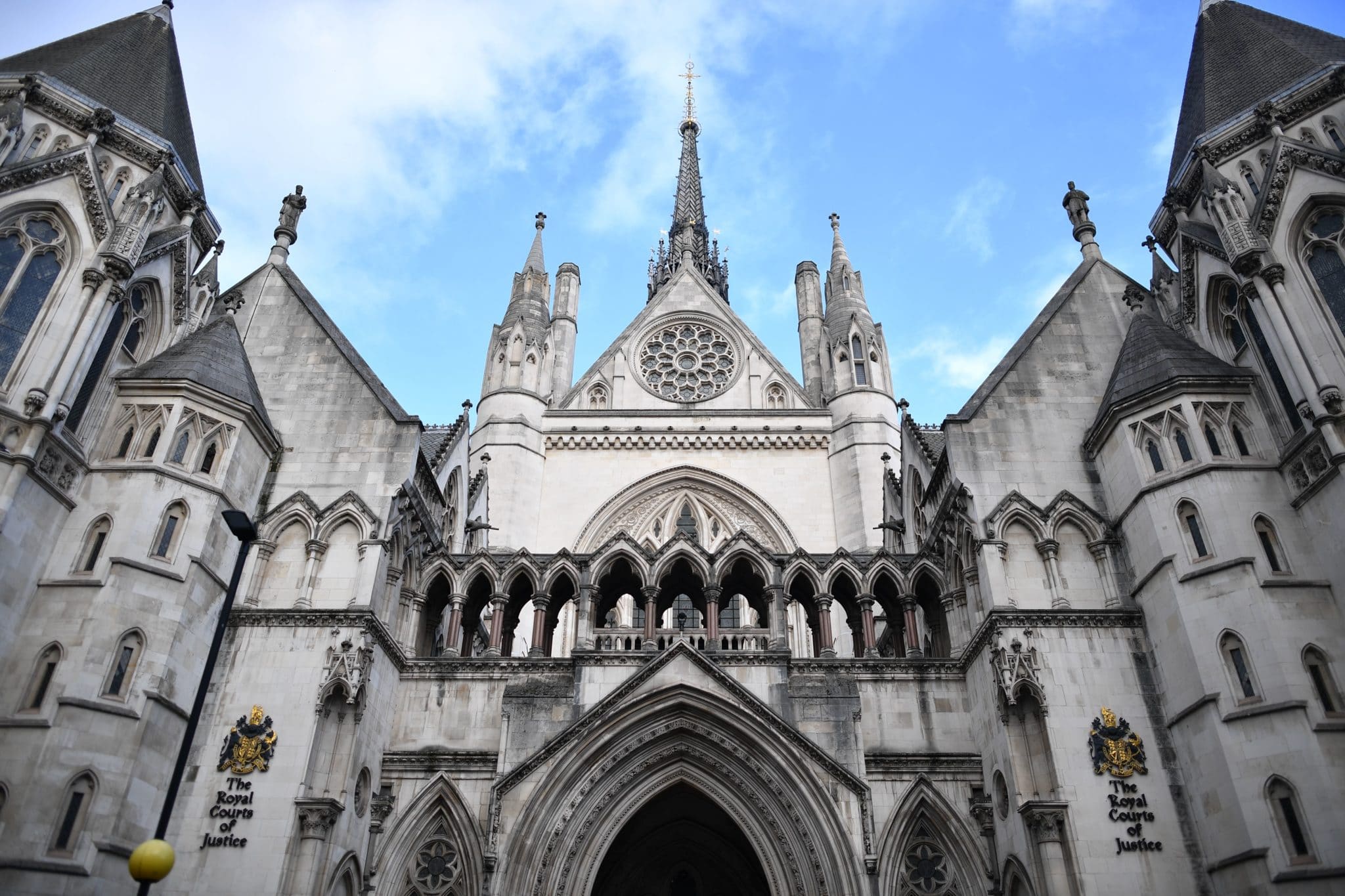The Royal Courts of Justice where the High Court is located in London. (Getty/ BEN STANSALL/AFP)
Many parents and carers of trans children are afraid to tell their kids about the High Court ruling on puberty blockers, Mermaids has reported.
The High Court ruled on 1 December that transgender under-16s must understand the implications both of puberty blockers and of potentially moving on to hormone therapy in order to consent to the medication.
Effectively, the ruling means clinicians must now seek court approval before prescribing hormones, a decision that parents of trans kids told PinkNews was “devastating, discriminatory and cruel”.
Mermaids has reported that of 206 of the families it works with, nine out of 10 said the puberty blockers ruling had a negative impact on their mental health.
Mermaids, in partnership with Goldsmiths university, national trans-led charity Gendered Intelligence and the LGBT Foundation asked parents and carers of trans kids about the impact of the ruling on their families.
Half said the ruling had had a “very negative” impact on mental health, while seven out of 10 said the ruling had had a negative impact on their trans child’s mental health.
Many said they were yet to tell their children about the ruling out of fear of how it would affect their access to healthcare.
Writing for the Independent, Mermaids CEO Susie Green said: “The panic, fear and distress expressed by the parents and carers who completed the survey cannot be underestimated.
“No other medical care for young people has been subject to this kind of scrutiny. It begs the question of what comes next, which other forms of healthcare are at risk of being eroded under the guise of concern?”
The High Court puberty blockers case was brought by Keira Bell, 23, who began taking blockers aged 16 and now regrets that decision, and Mrs A, who wants to prevent her trans teenager from accessing the medication.
The judges said in their ruling that it is “doubtful” children aged 14 to 15 could understand “the long-term risks and consequences” of taking puberty blockers and then hormone replacement therapy (HRT), and “highly unlikely” that children under 13 would be competent to give consent.
As a result, the court said clinicians may “regard these as cases where the authorisation of the court should be sought prior to commencing the clinical treatment”.
The only NHS gender clinic for under 18s in England and Wales, GIDS, immediately paused referrals for puberty blockers. Last year, 161 trans young people were referred to an endocrinology service to be considered for puberty blockers. Half of the trans youth referred were aged 16 or older.
